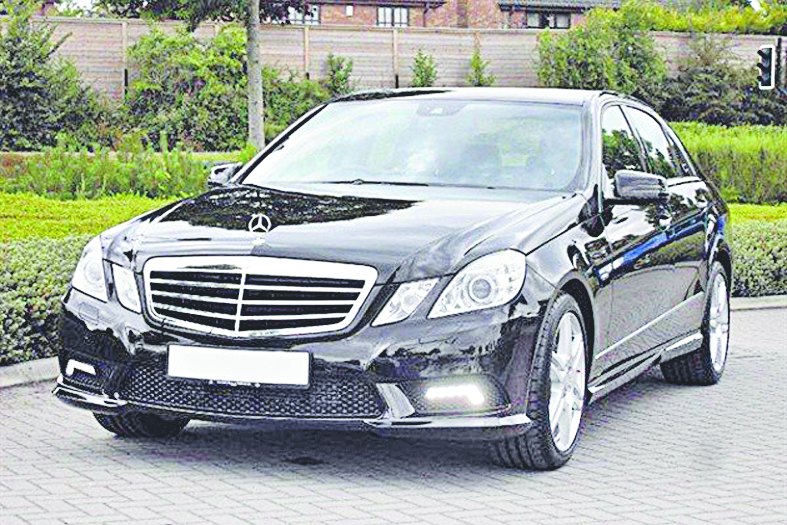


New Delhi, July 2: As India's foreign office prepares to host its largest summit in 32 years, it faces a challenge far removed from the testy waters of diplomacy - the capital's treacherous traffic.
The external affairs ministry is hunting for a fleet of 300 private limousines and vans and a band of trained, courteous drivers who it can trust to drive the visiting African heads of government and state during the four-day event in New Delhi this October.
Taking the job on will come with risks: a Rs 1,000 fine for a driver in "inappropriate" attire, up to Rs 2,000 for poor behaviour, Rs 2,000 for a 15-minute delay, and Rs 500 if the vehicle isn't clean enough or if the seats smell.
And the cars - which must belong to the Mercedes-Benz, BMW, Audi and Toyota stables - cannot be older than three years, a tender document specifying the government's demands says.
At stake for the foreign ministry is India's credibility as a major global nation that can offer both short-term hospitality and long-term gifts to a part of the world where New Delhi is increasingly competing with Beijing for influence.
The October 26-29 India Africa Forum Summit (IAFS) will be the biggest gathering of foreign Presidents and Prime Ministers on Indian soil since the Commonwealth Heads of Government Meeting and Non Aligned Movement summit, both in 1983.
"We are masters of bandobast (protocol-based arrangements); that's something we revel in," former diplomat Kishan Rana, who served in Indira Gandhi's office in 1981 and 1982 during preparations for the 1983 summits, told The Telegraph.
"Yes, the scale this time will be a challenge but it's something I expect we will manage quite well."
India hosted the first IAFS in New Delhi in 2008 and the summit's second edition was held in Addis Ababa - headquarters of the African Union - in 2011. But neither conclave drew more than 14 African heads of government or state.
The third edition, scheduled for 2014, was postponed because of fears that Indian airport officials may not have the finesse to sensitively handle West African visitors at a time the region was grappling with an Ebola outbreak.
For the Narendra Modi government, the October summit will be an opportunity to reassure African nations that the summit postponement and India's chronic failures to deliver promised aid or projects on time don't reflect apathy -as many African countries believe they do.
The government views the occasion as a chance to both enhance its aid offers - it was $5 billion in 2011 - and try and highlight a sensitivity China is often accused of neglecting in Africa.
Projects worth $10 billion that India is contemplating promising the African leaders will still fall well short of the $20 billion China committed in 2012, the $32 billion offered by Japan's Shinzo Abe in 2013, and the $37 billion the US promised last year.
But officials said India hoped to make up for its comparatively limited resources with a commitment that its projects would help educate, train and employ local populations across the African continent.
Many of China's heavy investment projects in Africa, as elsewhere, have faced criticism for using Chinese workers and managers, effectively transferring little skill, know-how or employment to the host nation.
A part of the catch-up that India is attempting lies in the invitations it is sending out this time. For the first time, the President and Prime Minister are inviting heads of government and state of all the 54 African countries.
But this has posed a logistical challenge that one officer described as "exciting but daunting". It's a challenge underscored by the hunt for cars and drivers that must meet very specific demands.
Heads of state and government the world over usually like to travel in either black or white cars, officials said. The Mercedes-Benz - either in the E250 or E350 models - must be "black or (of) dark colour".
The BMWs, which must belong to the 5 series, have to be white, as do the Audis and Toyotas.
The buses and vans to ferry junior delegates must adhere to similar specifications: they must be Tata, Toyota or Mercedes-Benz.
"The drivers of the cars provided must follow traffic rules and other regulations," the tender document says. "Drivers must be thoroughly briefed and trained about the nature of the event and shall be advised to demonstrate courteous behaviour at all times."
The drivers must know the routes well and wear "proper uniform" that the foreign office will specify.
But they must also know Delhi's traffic tricks. If they are late by as much as five minutes, another driver gets to carry the head of government or state - and the first driver stands fined.










